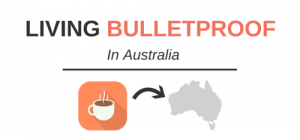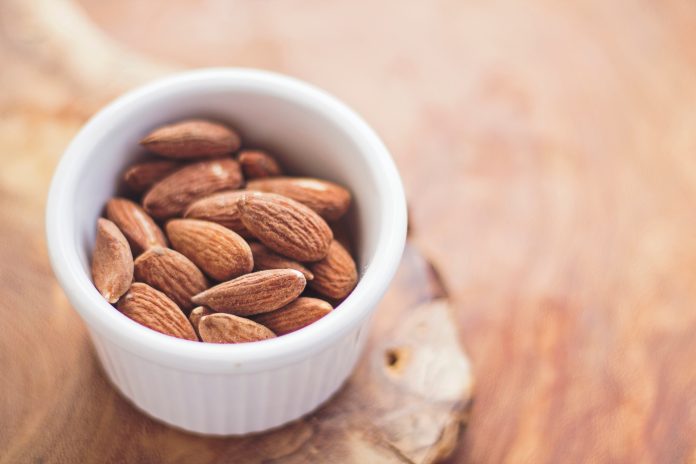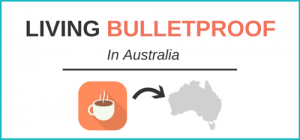When people switch to a Bulletproof-style diet, which includes plenty of good fats, with a lot less carbs than the standard Western-style diet, one of the things they may notice is a rise in cholesterol levels.
One might also feel so much better eating this way, have more energy and dropped any extra kilo’s, but for years we have been told that high cholesterol is a risk for cardiovascular disease. This increase in cholesterol may also have your doctor reaching for the prescription pad to sign off on a life time supply of Statin medications to “save” you from heart disease.
If you Google “heart disease and cholesterol” you will find two very opposite views on the dangers of high cholesterol, on one side will be the Heart Foundation and medical groups talking about the dangers of cholesterol and how you should reduce your fat intake, while on the other side there are several articles and research showing that the high cholesterol and heart disease link is a myth.
So who is right? The truth is somewhere in the middle (though I think it is favouring the myth side).
What is Cholesterol?
Cholesterol is an essential nutrient, which means that without it, we could not survive. Cholesterol is involved in healthy cell membranes, hormone production, immune function and the making of the myelin sheaf that protects neurons. It also protects against oxidative stress and it’s even an important component in having a healthy intestinal wall.
Your body makes about 75% of your cholesterol, with the rest coming from your diet. Though, because cholesterol is so important, if you reduce the cholesterol-rich foods in your diet, your body will simply make more. It works the other way too. If you eat a cholesterol-rich diet, your liver will make less cholesterol.
Several large studies have shown that low levels of cholesterol causes an increased risk of depression, dementia and Alzheimers, and an increased risk of early death.
LDL and HDL is not Cholesterol
When you go to the doctor to have your cholesterol levels tested they are actually measuring the total HDL and total LDL, and these are not cholesterol, so when you are told that you have high levels of the “bad” LDL cholesterol this is misleading.
HDL and LDL are lipoproteins that transport cholesterol, fat soluble vitamins and antioxidants to our cells. Our body needs both LDL and HDL cholesterol for good health.
There are different types of LDL. These are called sub fractions that on the standard cholesterol test are just lumped together as total LDL, however there are large buoyant LDL and small dense LDL particles. It is these small dense LDL particles, especially when they are in a high number, that can penetrate the endothelium of arteries, which is the beginning of atherosclerosis.
On a high-fat Bulletproof-style diet you will see a rise in HDL as well as the healthier large buoyant LDL in most people, this will lead to a rise in total cholesterol number, but a reduced risk of heart disease. However not everyone does so well on a high fat diet, certain gene mutations can mean a rise in the LDL particle number on high fat diet, I will discuss this briefly later.
Heart Disease and Inflammation
It is not just high amounts of small dense LDL particles that can cause atherosclerosis and increase your risk of heart disease, inflammation and oxidative damage is the driving force behind most chronic illnesses including heart disease.
Inflammation and oxidative damage is caused by pollution, smoking, high stress, processed foods and especially a diet high in simple sugars. These are all things that you are trying to avoid/reduce with a Bulletproof lifestyle.
The inflammatory marker HsCRP is a much better assessment of cardiovascular risk than measuring cholesterol or assessing your LDL levels. It is also the combination of higher HsCRP levels and the small dense LDL particles that will increase your risk of heart disease.
The role of inflammation in heart disease is one of the reasons that just as many people experience heart disease with normal cholesterol levels, compared with people who have high cholesterol levels.
Does a High-Fat Diet Cause Heart Disease?
For years we have been told that we must lower our fat intake and cholesterol rich foods to reduce the risk of cardiovascular disease, despite limited research showing that they will cause heart disease. In fact it is only quite recently that government guidelines have changed the recommendations regarding cholesterol, now stating that cholesterol rich foods do not increase the risk of cardiovascular disease.
The low-fat message still remains. Not only that but we are also encouraged to increase our consumption of polyunsaturated omega 6 fats like canola oil, soy bean oil and sunflower oil. If you search the supermarket shelves, you’ll have a hard time finding any salad dressing or mayonnaise that is not made with one of these oils.
These industrial processed oils are heat treated and easily oxidised. This turns the polyunsaturated fats into pro-inflammatory fats and will not only increase your risk of heart disease but all chronic inflammatory diseases including diabetes, dementia and cancer.
Other sources of polyunsaturated fats include nuts, seeds and oily fish. While these types of polyunsaturated fats are good for you, they can also be easily oxidised. That’s why it is important to eat good quality nuts and seeds, also watch out for poor quality fish oil supplements.
I’ve also written extensively on the best fats to eat and what to avoid.
The Typical Western Diet
While a high-fat diet alone will not cause heart disease, a high-fat diet (with industrial processed oils) combined with a high carbohydrate diet is the typical Western diet. Take-away foods and most packaged foods are high in sugars and the “bad” fats such as soy bean oil and canola oil.
A diet like this is pro-inflammatory and usually is higher in calories. With the combination of high-carb and high-fat, the body will try to burn the glucose from carbohydrates for fuel (usually inefficiently leaving us tired and craving for more carbs) and the excess calories are stored as body fat.
This is why a high-quality fat and lower carbohydrate diet like the Bulletproof diet is usually better for weight loss, energy levels and good health.
A High Fat Diet is Not for Everybody
What happens when you start eating a high fat/ low carbohydrate diet and your cholesterol levels go up – especially your LDL levels? Should you worry?
As I said earlier, the standard cholesterol test that your doctor does is almost meaningless as it doesn’t give us information on the LDL sub fractions or the LDL particle number. For some people, these can also go the wrong way on a diet high in saturated fats.
There are several genes that can cause a rise in the LDL particle number, and an increase in the small dense LDL particles. The main genes that can do this are APOB, LDLR and APOE4. These days getting a genetic test to assess your strengths and weaknesses is relatively easy and much cheaper than it was a few years ago.
If you have these genes and you are seeing a rise in your small dense LDL particles you maybe better switching to a Mediterranean-style diet, which is higher in monounsaturated fats and lowering your intake of saturated fats, and of course continuing to avoid the industrial processed omega 6 oils.
How to Test Your Cardiovascular Risk Factors
If the standard cholesterol test doesn’t give you much information about your cardiovascular risk, you may be wondering what the best markers are to assess your risk of heart disease (especially if you have a family history of heart disease, or you have high cholesterol).
My Recommended Tests:
- HDL and Triglycerides which are on the standard cholesterol test, are important markers to assess. A very low triglyceride level (under 0.8) will usually indicate that you are at lower risk.
- Apolipoprotein B is an indicator of your LDL particle number, the lower the better and this should be under 1
- LDL sub fractions which include VLDL and the small dense LDL particles
- Homocysteine which is an inflammatory marker associated with heart disease and Alzheimer’s.
- HsCRP which stands for High sensitive C-Reactive Protein and is an inflammation marker
- Fibrinogen which is a clotting factor and is increased with increased inflammation levels, high fibrinogen levels can increase the risk of clots and atherosclerosis.
These tests are available Australia wide through Planet Naturopath, and you can find out more information about the tests and how to order them at www.planetnaturopath.com
Summary
If you are following a Bulletproof-style diet with plenty of good fats, minimal sugars and processed foods your cholesterol levels may increase, but your cardiovascular risk will usually decrease.
However, if you have a family history of heart disease, it would be a good idea to do some advanced cardiovascular blood tests (as listed above) to assess your risk factors. That will help guide you on the changes you need to make.
Also, if your cholesterol levels go up, and in particular your LDL levels go up when you switch to a high fat diet, it would be a good idea to make sure there isn’t an increase in LDL particle number or an increase in the small dense LDL sub fractions that could increase your risk of heart disease.










